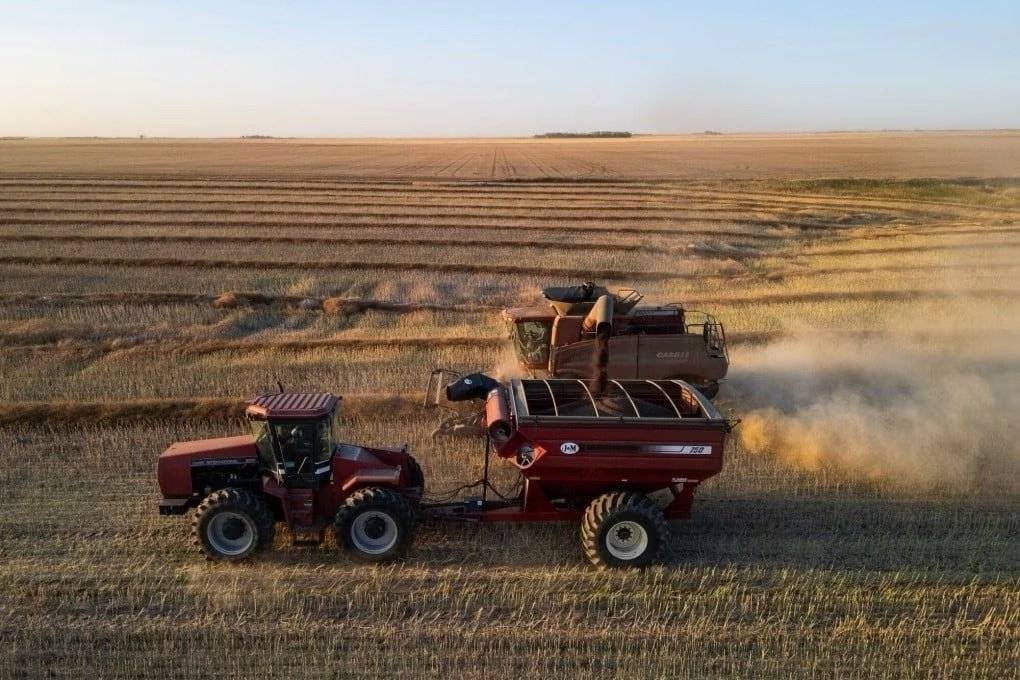China’s Grain Glut: Global Impacts of an Economic Slowdown
As China’s economic crisis deepens, its warehouses are overflowing with grain. This oversupply is sending shockwaves through global agricultural markets. For farmers around the world, the situation in China, one of their largest customers, spells uncertainty. French barley exports to China are plummeting, U.S. corn shipments are minimal, and Australian wheat farmers are bracing for reduced demand. The outlook for global agriculture is shifting, and it’s not a positive one. The Impact of China’s Cooling Economy on Global Agriculture For years, China’s rapid economic growth fueled global demand for agricultural commodities. From grain to soybeans, countries around the world ramped up production to meet China’s needs. However, with China’s economy slowing, and its population aging, the meteoric demand for these imports appears to be a thing of the past. According to Ivy Li, a commodity markets analyst at StoneX in Shanghai, “People are getting more pessimistic about the economy and demand. Importers will be very cautious, buying more slowly and doing more hand-to-mouth purchases.” This shift is already being felt. For instance, French barley exports to China have been slashed by half this season. U.S. corn shipments, once a staple of China’s imports, have dwindled to almost nothing for the new season. Even Australia, which is preparing for its wheat harvest, faces a nervous few months as demand weakens. Changes in Consumer Behavior in China The slowdown in China’s economy has affected more than just global farmers. Domestically, consumer confidence has been battered. Money-conscious households are cutting back on meat consumption and opting to dine out less frequently. This shift has reduced the demand for crops used to feed China’s massive pig herd and other food products. In response, the Chinese government has taken action to help local farmers. Beijing has asked traders to limit overseas purchases of corn, barley, and sorghum to help ease the oversupply situation. Earlier in the year, Chinese merchants bought cheap overseas cargoes of these crops, which now sit in bulging warehouses. The country is also reducing its reliance on soymeal in animal feed. Long-Term Implications for Global Farmers China’s economic boom in the early 2000s turned the country into a top consumer of global commodities. This surge in demand transformed global agricultural markets, with resource-rich countries expanding production to keep up with China’s needs. However, those days may be over. Even if China’s food security concerns ensure it continues importing large quantities, the rapid growth seen in the past two decades is unlikely to return. This is a particular blow to U.S. corn exporters. For the season starting in September, the U.S. has sold just 13,400 metric tons of corn to China – a steep drop from more than 564,000 tons in the previous year. Over the course of 2023-24, exports to China have fallen by 63%. Brazil, another key corn exporter, is also seeing a reduction in shipments. Meanwhile, French barley exports from the Rouen port are down 50% from last year, a worrying sign for European farmers. Soybeans: An Ongoing Demand for China There is one bright spot: soybeans. China will continue to rely heavily on soybean imports, especially from Brazil and the U.S. Despite the slowdown in other commodities, China’s domestic soybean production remains insufficient to meet its massive demand. Earlier this year, Brazil saw record soybean exports to China, driven by cheaper prices. However, the U.S. has seen a significant dip in its soybean sales to China, with projections for 2024-25 being the lowest in 16 years, outside of the 2018-19 trade war. Preparing for a New Normal The global agricultural market is in the midst of a significant shift, driven by China’s slowing economy and changing consumer habits. For the world’s farmers, this means adjusting to a new reality where demand is more subdued. While China’s food security needs may keep imports steady, the explosive growth of the past 20 years is likely over. Farmers and traders will need to remain cautious, adapting to a more conservative Chinese market that is driven by careful purchasing decisions rather than rapid expansion.
China’s Grain Glut: Global Impacts of an Economic Slowdown Read More »

